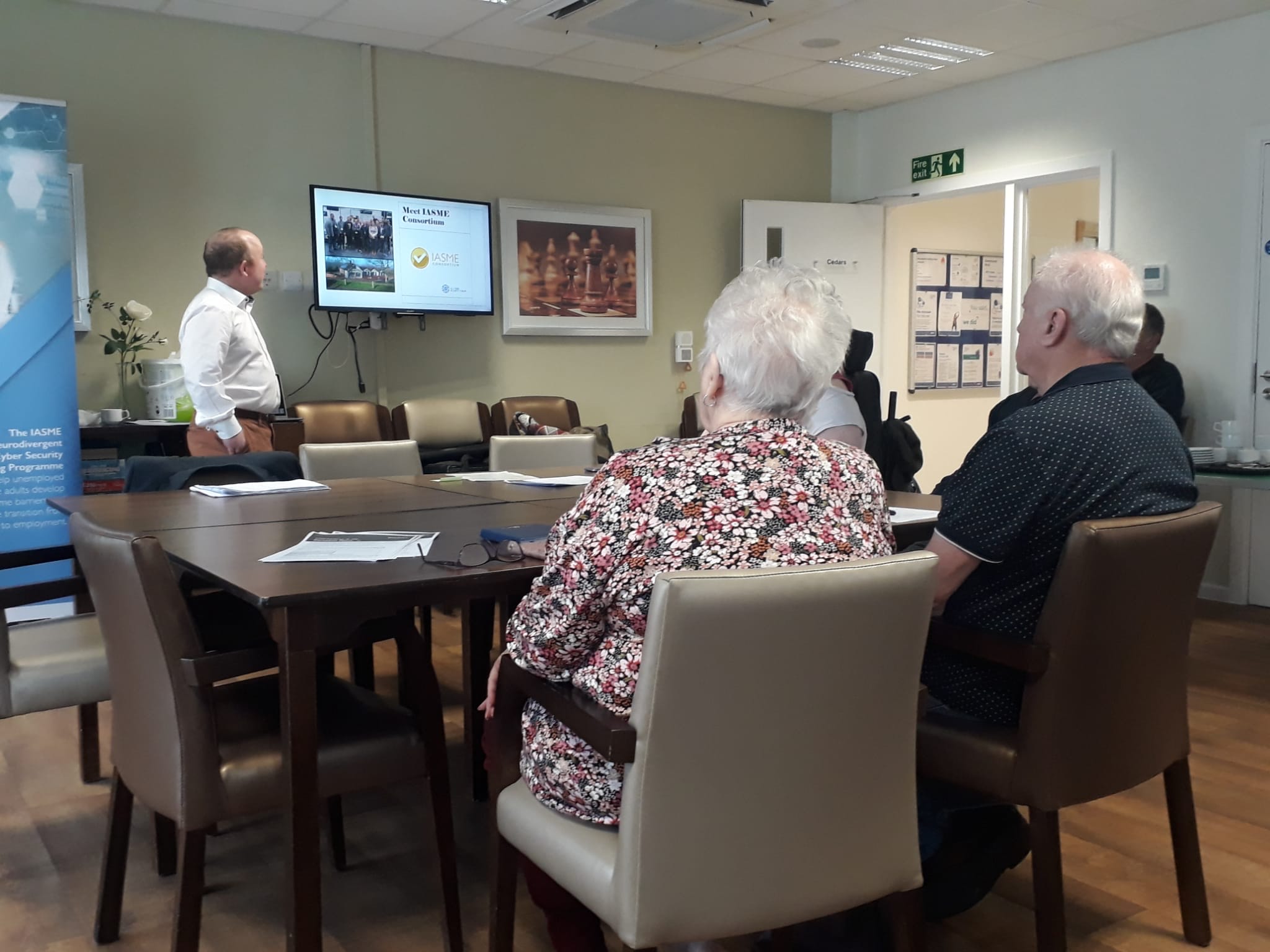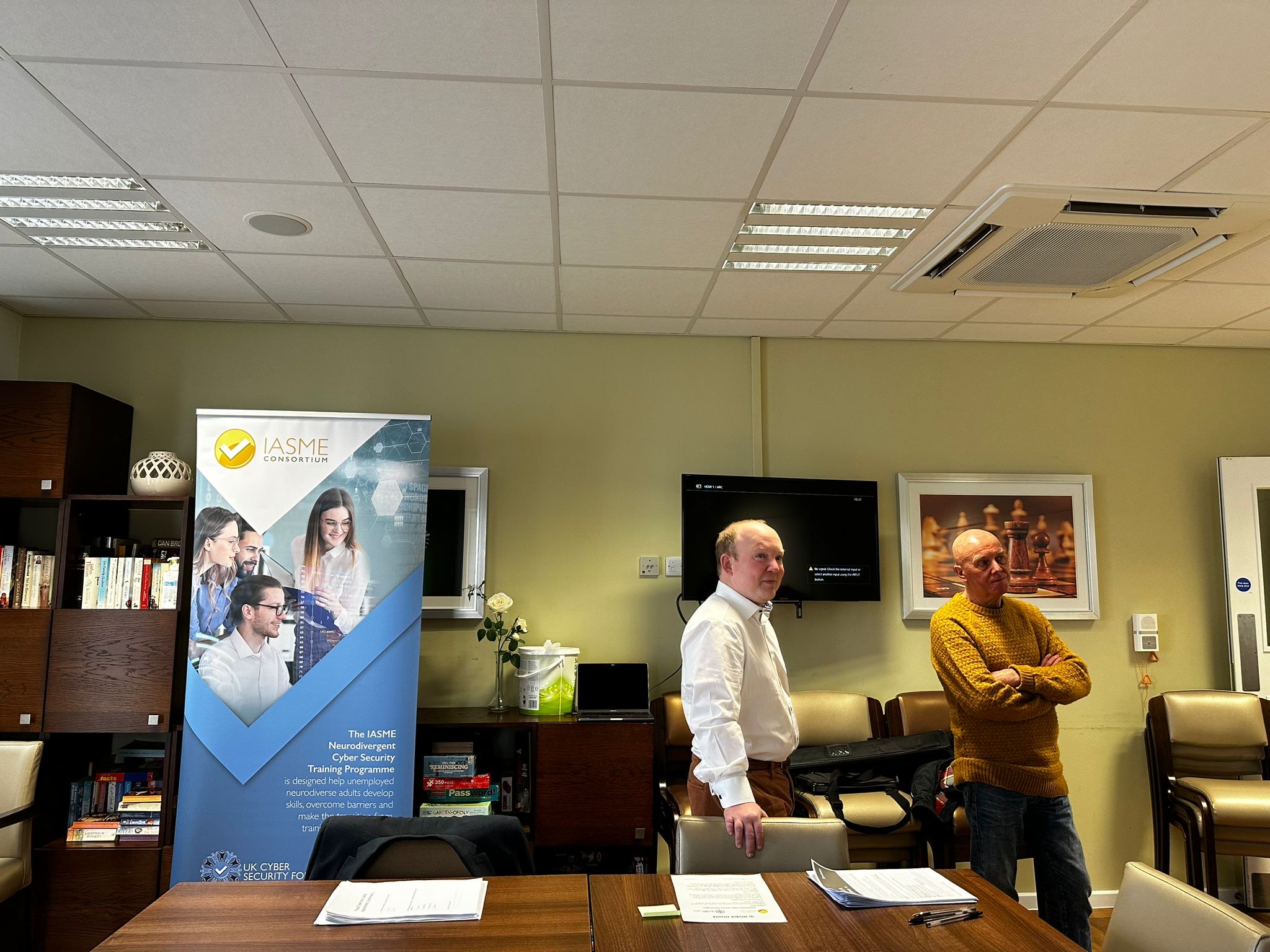Over 50% of all crime in the UK is cybercrime related. Certain groups of people are seen as a significant target for criminals who will willingly exploit their lack of awareness online to contact these individuals and gain access to their computers and devices.
To address this problem, we at the UK Cyber Security Forum (UKCSF) have successfully launched the Community Cyber Service pilot scheme. In partnership with Sanctuary Housing Association, the scheme provides vulnerable people with laptops or tablets which have the essential technical security controls activated on them. They also have security monitoring to help protect the individuals against cyber enabled fraud and theft. The efficacy of this model will be assessed over the next 6 months with the potential to further roll out the scheme across the UK.

We began the trial at Noble House, a retirement home on the outskirts of Worcester on Monday morning. In attendance from IASME was David Millard, Community Projects Co-ordinator, Wendy Barker, head of Community Projects and me, Alex Jones, Welfare Officer. We were also supported by Jamie Draper, Information Security Team Leader and Yusuf Raja, Graduate Trainee in tech from Sanctuary Housing and PC’s Mandy Gregg and Paul Slaymaker who even went around the home knocking on residents’ doors alerting them to the morning’s proceedings.
So, with tea, coffee and biscuits provided, some of the Noble House residents settled down to a fantastic presentation from David, outlining how the scheme would work and how we would support them throughout, even supplying devices where needed. Jamie also presented a ‘Scam Survey’ quiz which everyone took part in, throwing some light on some of the nefarious ways scammers try to steal from us: various online fraud schemes, including online banking, Amazon accounts and significantly, pension scams.

PC Mandy Gregg told us all about the terrible case of a ‘romance scam’ she had investigated, where a woman lost her life savings and even her house to a man who was using ‘identity theft’ to pose as a lover who was in serious financial difficulties. After all this, a lively discussion ensued about the importance of being safe online and the potential threats from social engineering.
Scammers have been known to go under a fake name and profile and convince the victim they are in a relationship. This is known as a romance scam and can be used to gain the victims trust to steal both money and personal information. Elderly people are targeted because of their isolation.

What is the Community Cyber Service Pilot?
The UK Cyber Security Forum have launched a pilot programme to address the issues of cyber related fraud that particularly affects vulnerable people and some older people who might have less experience with technology.
Based at Sanctuary House retirement home, the program will install basic technical controls onto the devices of fifty residents and include high level management motoring to protect the security of the devices over a six-month period.
The UKCSF community team will provide hands-on support for the individuals and their devices and there will be monthly cyber-health checks and access to a helpline.
– Alex Jones
The UKCSF is a community interest company focused on facilitating a more diverse community in the cyber security industry and developing cyber security projects to help communities. Read more about their work here.



